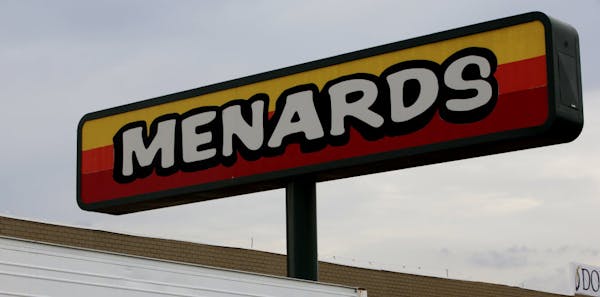After the turkey is carved, the cranberries consumed and the stomachs stuffed, the 18 Thanksgiving Day guests at Stefan Plambeck's St. Paul home will gather around a turkey-shaped menorah to celebrate another holiday of the day: Hanukkah.
Many U.S. Jews are calling it Thanksgivukkah and finding special ways to mark the rare confluence of holidays, knowing that by some estimates it won't happen again for another 79,000 years.
Cooks will top sweet potato latkes with cranberry sauce. Children in Jewish religion classes have made hand-traced paper turkeys with candles for plumes. Among e-cards available for the dual holiday: "Happy Thanksgivukkah" and "Gobble Tov!"
"Mostly people are just having fun with the convergence, but the truth is that there are a lot of real connections between the two," said Rabbi Adam Spilker, of Mount Zion Temple in St. Paul, the oldest synagogue in Minnesota.
"The gratitude for our freedom is certainly central to both holidays," he said. "Thanksgiving obviously was instituted by the pilgrims to give thanks for the harvest and for religious freedom of being in America, and the Maccabees in the story of Hanukkah as well were celebrating their religious freedom from Syrian-Greek tyranny."
At the Talmud Torah of Minneapolis, a Jewish supplemental school, teachers have been embracing the convergence of holidays with students, said Susie Chalom, executive director. Much of their curriculum "has to do with gratitude to God and to the country we live in for the blessings of freedom," she said.
Falling on the Thanksgiving holiday will mean more families will be together for Hanukkah, she said. "It's wonderful, you know, because parents expect their kids home [from college] anyway for Thanksgiving."
At Beth El Synagogue in St. Louis Park, Rabbi Avi Olitzky said the two holidays have a "similar bedrock" rooted in Sukkot, a biblically mandated Jewish festival giving thanks for the fall harvest.
"It's really special to have the opportunity to celebrate both, and when the two become one, you have to work extra hard to make sure that one doesn't become shortchanged," Olitzky said. "I think you remember the principals of both. … For Thanksgiving it's a focus on freedom and our pride as Americans, and for Hanukkah it's a focus on freedom and our pride as Jews."
Often, Hanukkah falls in December and gets compared to Christmas. Spilker said he's not worried about Thanksgiving Day overshadowing the Jewish holiday this year.
"I only think it gets accentuated," he said. "There are enough connections between the two holidays that actually will help bring out the true meaning of Hanukkah, which actually gets diminished when it gets compared to Christmas and becomes a gift-giving holiday only."
Risa Kessler, of Golden Valley, will be setting an autumn-hued table for 12 on Thursday, with Hanukkah-themed napkins.
She'll serve turkey, stuffing and vegetables. There will be sweet potato latkes served alongside mashed potatoes, and for dessert there will be apple pie, pumpkin bars and Hanukkah cookies.
"It's bridging the two," she said.
In St. Paul, Plambeck said he plans to serve his houseful of guests a traditional Thanksgiving dinner around 5 p.m., and then, after the meal is finished, they will light the candles on the turkey menorah and celebrate Hanukkah.
Plambeck said he ordered the piece, created by a 9-year-old boy and sold for $50 online as a Menurkey, as a keepsake to commemorate the occasion. It sits atop his already decorated table.
"I'm only going to use the Menurkey for one night," he said. "I want everybody to sign their names on the plaster Menurkey as a memory of this one night where Hanukkah and Thanksgiving coincide."
Pam Louwagie • 612-673-7201

An infamous heist put this North Woods town in the global spotlight. Nervous breakdowns and Hollywood deals ensued.

Caitlin Clark helps KARE 11 and Fox 9 reporters bond with their daughters

Fewer loon chicks surviving due to climate change, researchers say

